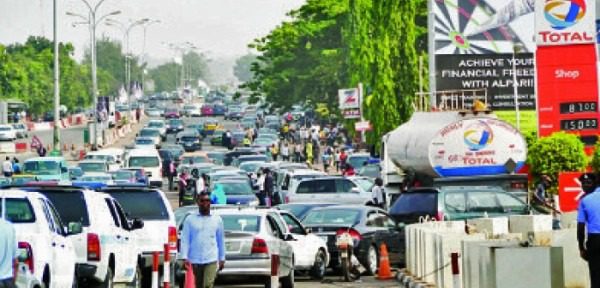National Issues
Nigeria And The Subsidy Unhealthy Romance -By Nathaniel Ogidi
One of the major reasons why Nigerians are wary of subsidy removal is the trust deficit between the people and the government. The government must work to build trust with the people by being transparent and accountable in its dealings. This can be achieved by involving the people in decision-making processes and ensuring that policies are implemented in a fair and equitable manner.

Nigeria’s romance with fuel subsidy has been a long-standing issue that has persisted for decades. The history of fuel subsidy in Nigeria dates back to the 1970s, when the government introduced subsidies to keep the price of petroleum products low for consumers.
Successive governments have tried to remove the subsidy, but have met strong opposition from the populace. Nigerians are willing to pay any amount for the price of petrol, but they would not pay a Naira higher in the name of subsidy removal.
In 2022, the Nigerian National Petroleum Corporation (NNPC) brought in bad products, which led to attendant scarcity and price increment. Despite the increase in price, Nigerians did not hesitate to buy fuel. This shows the deep-seated attachment that Nigerians have to fuel subsidy.
Recently, the Tinubu’s administration mentioned subsidy removal, and Nigerians are all out with their fangs crying for blood. This just goes to show how deeply ingrained the subsidy culture is in Nigeria.
However, it is important to note that fuel subsidy has many negative effects on the economy. It has led to corruption, inefficiency, and mismanagement in the oil and gas sector. It has also discouraged investment in the downstream sector and stifled economic growth.
To make any meaningful progress , the Nigerian government must find a way to wean the populace off their addiction to fuel subsidy. It is not sustainable and has many negative consequences. The government must prioritize investment in the downstream sector and create policies that will encourage private sector participation. This will go a long way in ensuring that Nigerians have access to affordable and quality petroleum products, while also promoting economic growth and development.
Indeed, the burden of subsidy removal must not be borne solely by the populace. The government must also play its part in ensuring that policies are made to ease the burden of subsidy removal on the people.
One of the major reasons why Nigerians are wary of subsidy removal is the trust deficit between the people and the government. The government must work to build trust with the people by being transparent and accountable in its dealings. This can be achieved by involving the people in decision-making processes and ensuring that policies are implemented in a fair and equitable manner.
Furthermore, the government must invest in infrastructure development, particularly in the areas of road and power. Most of Nigeria’s roads are in deplorable conditions, and this has led to increased transportation costs, which in turn has contributed to the high cost of living in the country. If the government can fix the roads and improve power supply, it will reduce the need for petroleum products, and this will, in turn, reduce the pressure on the subsidy regime.
The government must also provide alternative forms of transportation, such as railways and waterways, to reduce the dependency on road transportation. This will not only reduce the demand for petroleum products but will also create jobs and stimulate economic growth.
In addition, the government and its agencies must cut their expenses and reduce their flamboyant lifestyle. This will free up funds that can be used to develop infrastructure and provide social services to the people. If the government can show that it is willing to make sacrifices, it will encourage the people to do the same.
In conclusion, the subsidy regime in Nigeria is not sustainable, and the government must find a way to wean the populace off their addiction to fuel subsidy. However, the burden of subsidy removal must not be borne solely by the people. The government must play its part by investing in infrastructure development, providing alternative forms of transportation, and cutting its expenses. If the government can do these things, it will reduce the impact of subsidy removal on the people and promote economic growth and development, but the never dying love that Nigerians have for the Fuel subsidy must be renounced forthwith as this romance has proven to be no longer beneficial.
Ogidi Nathaniel is a public opinion analyst and social commentator who writes from Ikorodu.

















